Turn any article into a podcast. Upgrade now to start listening.
Premium Members can share articles with friends & family to bypass the paywall.
Happy Monday! We hope you and your loved ones enjoy Memorial Day today while pausing to remember the sacrifices of those who’ve died defending our country.
Quick Hits: Today’s Top Stories
- President Donald Trump on Sunday delayed previously announced plans to place a 50 percent tariff on goods and services imported to the U.S. from the European Union. After saying Friday that he would impose the tariffs beginning June 1, Trump changed course Sunday evening, pushing their implementation to July 9 to allow more time for trade negotiations. The change came after Trump spoke with European Commission President Ursula von der Leyen on Sunday. “Europe is ready to advance talks swiftly and decisively,” von der Leyen posted on X. “To reach a good deal, we would need the time until July 9.”
- Trump also threatened on Friday to levy a 25 percent tariff on Apple iPhones that are not manufactured in the U.S. “I expect their iPhone’s [sic] that will be sold in the United States of America will be manufactured and built in the United States,” the president posted on social media, “not India, or anyplace else.” While Apple has historically produced a majority of its phones in China, Apple CEO Tim Cook said earlier this month that assembly factories in India would produce the bulk of iPhones sold in the U.S. going forward. No Apple iPhone products are currently made in the U.S., and analysts have estimated the price of the device would more than double if the company onshored the manufacturing.
- Trump announced on social media Friday that he will allow the Japan-based Nippon Steel company to purchase U.S. Steel, describing the deal as a “planned partnership” that will create American jobs. U.S. Steel approved a $14.9 billion sale to Nippon in December 2023, but former President Joe Biden blocked the acquisition in January 2025, citing national security concerns. In April, Trump issued a memo directing the Committee on Foreign Investment in the United States to produce a new review of the proposed acquisition. U.S. Steel’s corporate headquarters will remain in Pittsburgh, Pennsylvania, and following the president’s announcement Friday, the company’s shares jumped more than 20 percent.
- Russia launched a large-scale drone and missile attack across Ukraine late Saturday night, killing at least 12 civilians—including children—and injuring more than a dozen more. Ukrainian President Volodymyr Zelensky said that Russia launched more than 300 drones and nearly 70 missiles, striking civilian residences, businesses, and, in Kyiv, college dormitories. “This cannot be ignored,” Zelensky tweeted. “Silence of America, silence of others around the world only encourage Putin.” Citing the “needless killing,” Trump posted on Truth Social on Sunday night that “something has happened to” Putin and that he “has gone absolutely CRAZY.” The day following Russia’s attack, Ukrainian and Kremlin officials said they completed a 1,000-person exchange that included prisoners of war and detained civilians.
- U.S. District Judge Allison Burroughs issued a temporary restraining order on Friday, pausing the Trump administration’s decision to bar Harvard University from enrolling international students, who make up about 27 percent of the university’s student body. Earlier that day, Harvard sued the administration after Secretary of Homeland Security Kristi Noem on Thursday revoked the university’s Student and Exchange Visitor Program certification—which authorizes the school to enroll foreign students—after she said Harvard refused to hand over records of international students and information relating to potential “misconduct and other offenses” that would render them “inadmissible or removable.” However, Burroughs temporarily blocked Noem’s order, citing the “immediate and irreparable injury” it poses to Harvard and scheduled a court conference for Tuesday.
- U.S. District Court Judge Brian Murphy on Friday ordered the Trump administration to facilitate the return of a Guatemalan man deported to Mexico, writing that the man’s legal challenge was likely to “succeed in showing that his removal lacked any semblance of due process.” Referred to in court by the initials O.C.G., the deported man claimed that he had been raped and held captive in Mexico before entering the U.S. and seeking asylum, and was now living in hiding in Guatemala, afraid for his life. The judge said the government had falsely claimed that O.C.G. did not fear deportation to Mexico, which it later characterized as a mistake, and mistakenly released his full name on the internet.
- A U.S. delegation led by Trump’s special envoy to the Middle East, Steve Witkoff, met with Iranian officials in Rome for more than two hours on Friday in the fifth round of nuclear talks held between the two countries. Oman is mediating the talks, and its foreign minister, Badr bin Hamad Al Busaidi, tweeted on Friday that the meeting ended “with some but not conclusive progress.” The Wall Street Journal also reported on Friday that U.S. and Iranian negotiators were seeking to first establish a framework for a possible deal and negotiate specific terms later.
- The White House on Friday lifted a wide array of sanctions on Syria, following Donald Trump’s promise earlier this month to help the country’s new government rebuild after the fall of President Bashar al-Assad’s regime. The State Department issued a six-month waiver on sanctions imposed in 2020 under the Caesar Act, which targeted non-U.S. companies that did business with the Syrian government, and the Treasury Department lifted a ban that stopped U.S. citizens and companies from conducting many financial transactions involving Syrian people or firms. The sanctions had been introduced mostly in response to human rights abuses and war crimes under the Assad regime.
- Venezuela on Sunday held elections for governor and legislators in Essequibo, a region internationally recognized as part of the country of Guyana, which neighbors Venezuela. Last week, Guyana’s defense chief, Brig. Gen. Omar Khan, warned that residents who vote will face criminal penalties, including treason, and that voting amounts to “support for a passive coup.” The Essequibo area, while sparsely populated, comprises about two-thirds of Guyana’s territory. Large oil deposits are also located off the Essequibo coast.
- The Department of Justice reached an agreement with aerospace giant Boeing on Friday that spares the company from potential criminal prosecution in exchange for paying or investing a total of $1.1 billion, according to court papers filed on Friday. Boeing had agreed in July 2024 to plead guilty to misleading federal regulators regarding a flight-control system on its 737 Max airplanes prior to two fatal crashes of the aircraft that killed a total of 346 people. In December 2024, a federal judge blocked the plea deal, citing concerns with the Justice Department’s diversity, equity, and inclusion policies. Under the new agreement, Boeing will pay $444.5 million to the families of the plane crash victims, in addition to the $500 million for victims the company previously paid; $455 million to strengthen “compliance, safety, and quality programs” within the company; and $487.2 million in criminal penalties, half of which Boeing already paid. The agreement was reached “in principle” and has yet to be finalized.
‘Peace Is a Fragile Thing That Needs Constant Vigilance’
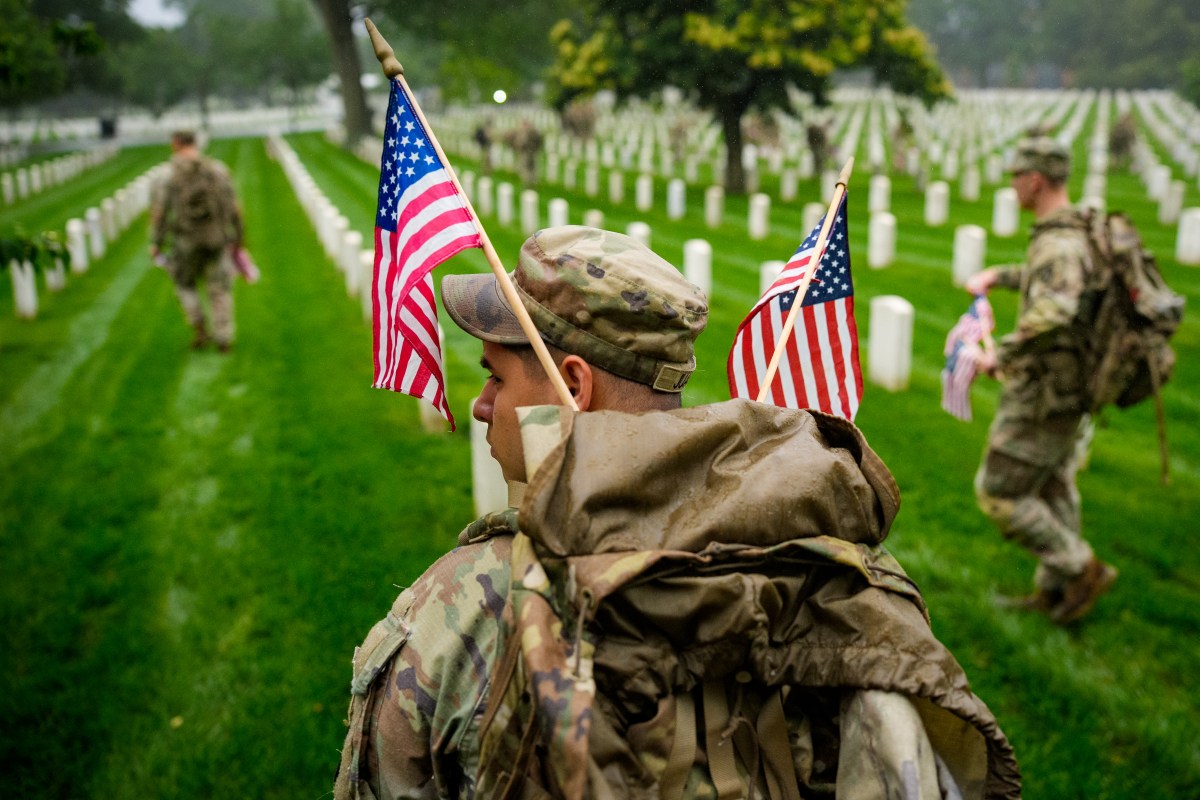
Instead of our usual news item today, we hope you will take the time to read this excerpt from President Ronald Reagan’s Memorial Day remarks at Arlington National Cemetery, delivered on May 26, 1986. Notably, the speech came roughly three-and-a-half years before U.S. and Soviet leaders declared the end of the Cold War.
I was thinking this morning that across the country children and their parents will be going to the town parade and the young ones will sit on the sidewalks and wave their flags as the band goes by. Later, maybe, they’ll have a cookout or a day at the beach. And that’s good, because today is a day to be with the family and to remember.
Arlington, this place of so many memories, is a fitting place for some remembering. So many wonderful men and women rest here, men and women who led colorful, vivid, and passionate lives. There are the greats of the military: Bull Halsey and the Admirals Leahy, father and son; Black Jack Pershing; and the GI’s general, Omar Bradley. Great men all, military men. But there are others here known for other things.
Here in Arlington rests a sharecropper’s son who became a hero to a lonely people. Joe Louis came from nowhere, but he knew how to fight. And he galvanized a nation in the days after Pearl Harbor when he put on the uniform of his country and said, “I know we’ll win because we’re on God’s side.” Audie Murphy is here, Audie Murphy of the wild, wild courage. For what else would you call it when a man bounds to the top of a disabled tank, stops an enemy advance, saves lives, and rallies his men, and all of it singlehandedly. When he radioed for artillery support and was asked how close the enemy was to his position, he said, “Wait a minute and I’ll let you speak to them.”
Michael Smith is here, and Dick Scobee, both of the space shuttle Challenger. Their courage wasn’t wild, but thoughtful, the mature and measured courage of career professionals who took prudent risks for great reward—in their case, to advance the sum total of knowledge in the world. They’re only the latest to rest here; they join other great explorers with names like [Gus] Grissom and [Roger] Chaffee.
Oliver Wendell Holmes is here, the great jurist and fighter for the right. A poet searching for an image of true majesty could not rest until he seized on “Holmes dissenting in a sordid age.” Young Holmes served in the Civil War. He might have been thinking of the crosses and stars of Arlington when he wrote: “At the grave of a hero we end, not with sorrow at the inevitable loss, but with the contagion of his courage; and with a kind of desperate joy we go back to the fight.”
All of these men were different, but they shared this in common: They loved America very much. There was nothing they wouldn’t do for her. And they loved with the sureness of the young. It’s hard not to think of the young in a place like this, for it’s the young who do the fighting and dying when a peace fails and a war begins. Not far from here is the statue of the three servicemen—the three fighting boys of Vietnam. It, too, has majesty and more. Perhaps you’ve seen it—three rough boys walking together, looking ahead with a steady gaze. There’s something wounded about them, a kind of resigned toughness. But there’s an unexpected tenderness, too. At first you don’t really notice, but then you see it. The three are touching each other, as if they’re supporting each other, helping each other on.
I know that many veterans of Vietnam will gather today, some of them perhaps by the wall. And they’re still helping each other on. They were quite a group, the boys of Vietnam—boys who fought a terrible and vicious war without enough support from home, boys who were dodging bullets while we debated the efficacy of the battle. It was often our poor who fought in that war; it was the unpampered boys of the working class who picked up the rifles and went on the march. They learned not to rely on us; they learned to rely on each other. And they were special in another way: They chose to be faithful. They chose to reject the fashionable skepticism of their time. They chose to believe and answer the call of duty. They had the wild, wild courage of youth. They seized certainty from the heart of an ambivalent age; they stood for something.
And we owe them something, those boys. We owe them first a promise: That just as they did not forget their missing comrades, neither, ever, will we. And there are other promises. We must always remember that peace is a fragile thing that needs constant vigilance. We owe them a promise to look at the world with a steady gaze and, perhaps, a resigned toughness, knowing that we have adversaries in the world and challenges and the only way to meet them and maintain the peace is by staying strong.
That, of course, is the lesson of this century, a lesson learned in the Sudetenland, in Poland, in Hungary, in Czechoslovakia, in Cambodia. If we really care about peace, we must stay strong. If we really care about peace, we must, through our strength, demonstrate our unwillingness to accept an ending of the peace. We must be strong enough to create peace where it does not exist and strong enough to protect it where it does. That’s the lesson of this century and, I think, of this day.
Today’s Must-Read
Our constitutional system, inspired by the writings of Aristotle among others, is designed with human weakness in mind. An unbound executive was precisely what it meant to avoid because the Founding Fathers recognized, as Aristotle did, that an executive unconstrained by law is a tyranny, and that those in whom such power was concentrated were likely to be corrupted by power. Aristotle thought that it would be lovely to have a perfectly wise and just monarch, but recognized that, human nature being what it is, a tyrant was much more likely.
Toeing the Company Line
Dying Hard
Lessons from an American hostage crisis.
A Blinding ‘Realism’
The MAGA take on world affairs is bad for our allies—and us.
Tradwives Are in Short Supply
Women with career goals can still—gasp—make good wives.
How to Build a Culture
Incubators exist for tech and business. Why not for the arts?
The Monthly Mailbag With Nick Catoggio
Our staff writer answers your questions.
The Strange Death of Standards
Put the water down, people!
Worth Your Time
- Writing in The Atlantic, Jonathan Chait questioned whether the intra-Democratic Party debate over the “abundance agenda” is driven by public policy or something else. “A civil war has broken out among the Democratic wonks. The casus belli is a new set of ideas known as the abundance agenda,” Chait wrote. But there’s something different about this debate. “The factional disputes that tear apart the left tend to involve wrenching, dramatic issues where the human stakes are clear: Gaza, policing, immigration. And so it is more than a little odd that progressive activists, columnists, and academics are now ripping one another to shreds over such seemingly arcane and technical matters as zoning rules, permitting, and the Paperwork Reduction Act.” One reason for all the strife, Chait theorizes: “The abundance agenda promises to supply moderate Democrats with a positive identity, rather than merely a negative one. That dynamic has only raised the stakes of the abundance agenda within the party. Its ideas are ambitious enough, but its political implications have set off a schismatic conflict not just over a collection of proposals and the Democratic Party’s direction—but over who should have the standing to direct it.”
- The Economist reported last week on how American political groups are exporting the culture wars to Africa, which is experiencing a surge of conservative religious activism. “By nudging African policymakers in ever more illiberal directions on sexuality and gender, such groups have already had a big impact on African politics,” the article reads. “In recent years lawmakers in Kenya, Ghana, Nigeria and elsewhere have demanded sweeping anti-LGBTQ measures. In 2023 Uganda passed one of the world’s harshest anti-homosexuality laws, including the death penalty for some same-sex acts. … Links between Christian conservatives in Africa and the West are not new, but two key developments help explain the strength of their alliance today. First, the AIDS epidemic in the early 2000s drew the attention of American evangelicals who opposed gay rights. American church groups brought a new militancy to the continent’s gay-rights debate, says Kapya John Kaoma, a Zambian priest at Boston University who studies anti-LGBTQ politics. The second was the election of Barack Obama, which convinced some Christian conservatives in America that the ground they had lost to liberals there might be irreversible. As the global culture wars heated up, Africa was heralded as ‘the last man standing” in defence of biblical values.’”
Presented Without Comment
New York Times: Why Vietnam Ignored Its Own Laws to Fast-Track a Trump Family Golf Complex
To fast-track the Trump development, Vietnam has ignored its own laws, legal experts said, granting concessions more generous than what even the most connected locals receive. Vietnamese officials, in a letter obtained by The New York Times, explicitly stated that the project required special support from the top ranks of the Vietnamese government because it was “receiving special attention from the Trump administration and President Donald Trump personally.”
Also Presented Without Comment
The Wall Street Journal: North Korea Detains Officials Blamed for Kim Jong Un’s Capsized Warship
In the Zeitgeist
Mission: Impossible—The Final Reckoning premiered on Friday, combining with Disney’s live-action Lilo & Stitch remake to fuel a record Memorial Day weekend box office. In an interview with the BBC last week, M:I star Tom Cruise explained how, at age 62, he still pulls off stunts like hanging off a plane’s wings.
Let Us Know
Is there someone in particular you are honoring this Memorial Day?
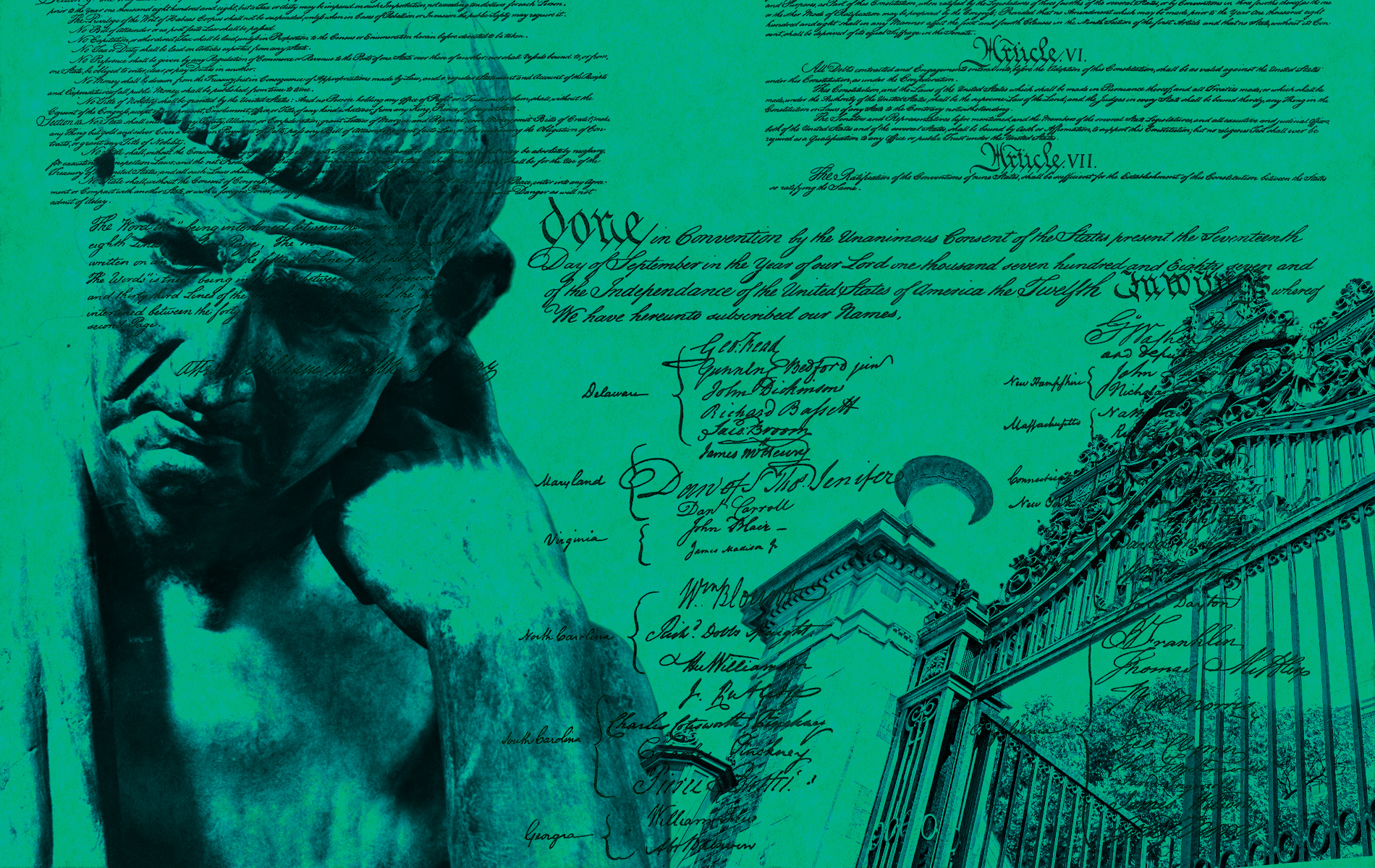

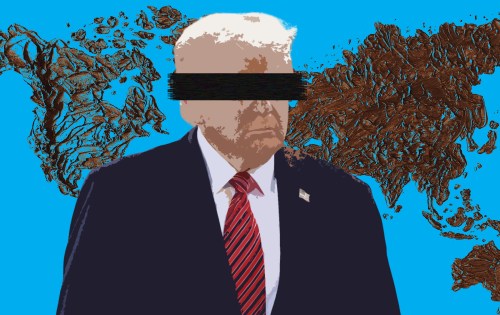



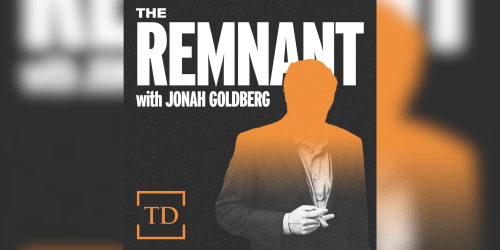




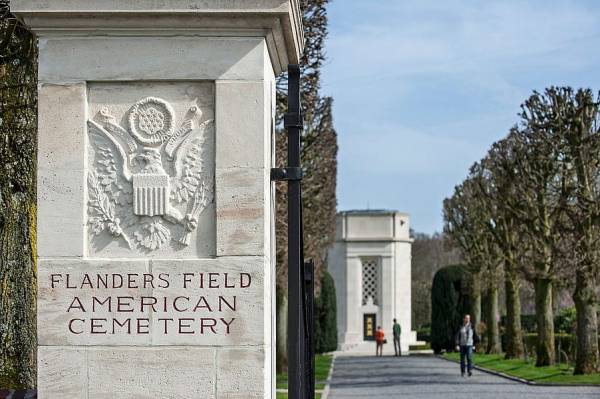
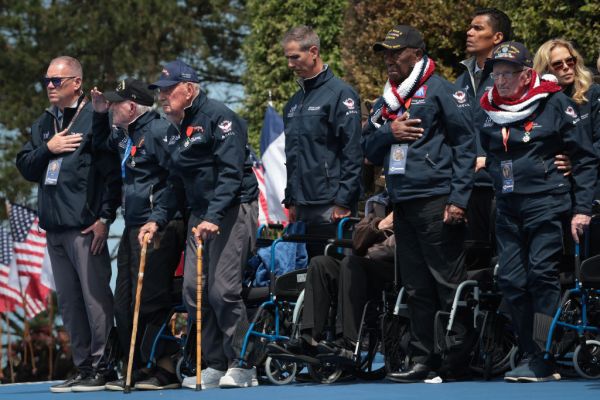

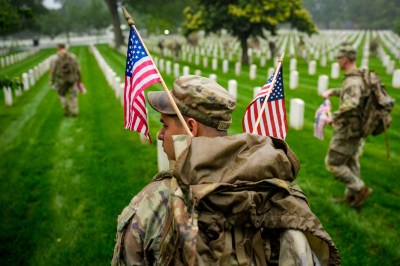
Please note that we at The Dispatch hold ourselves, our work, and our commenters to a higher standard than other places on the internet. We welcome comments that foster genuine debate or discussion—including comments critical of us or our work—but responses that include ad hominem attacks on fellow Dispatch members or are intended to stoke fear and anger may be moderated.
With your membership, you only have the ability to comment on The Morning Dispatch articles. Consider upgrading to join the conversation everywhere.